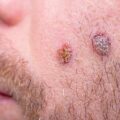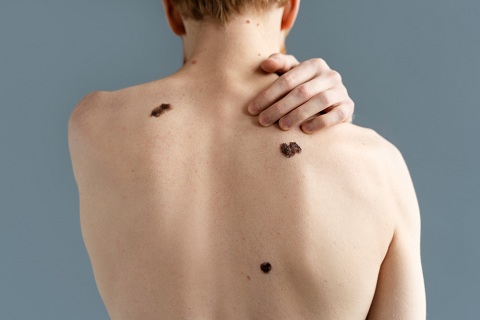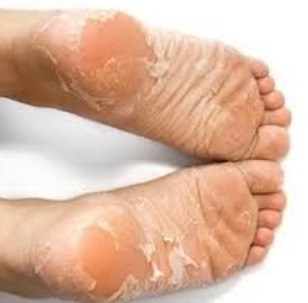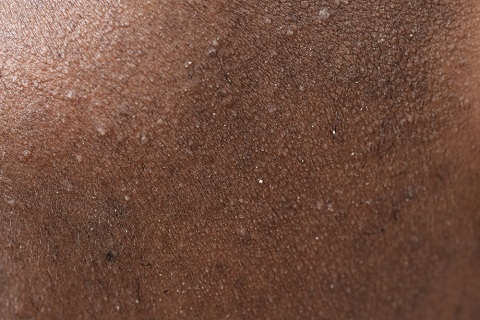Urticaria, commonly known as hives, is a skin condition characterized by raised, itchy welts that appear suddenly on the skin. This is transient eruption with swelling of the skin characterised by formation of wheals or hives due to allergen.These welts can vary in size and shape and may come and go within a few hours or days. Urticaria can be acute, lasting for a few days or even weeks, or chronic, lasting for four to six month or even years.
Causes of Urticaria
Urticaria can be caused by various factors, including allergic and non-allergic triggers. Allergic causes may include certain foods as shellfish, pork,nuts, carbs, eggs, milk and milk products, and others, medications, insect bites(stings), or environmental factors such as pollen or pet dander as ascaris, giardia, lice, fleas, etc. Non-allergic causes may include stress, trauma, infections, or underlying health conditions like thyroid disorders or autoimmune diseases. Cold, excercise, friction, perspiration, pressure, and sunlight,
Sometimes can be caused by liver extract, penicillin, serum, NSAID, ACE inhibitors, aspirin, codeine, morphine, quinine,vancomycin, ARB and various others.
Some miscellaneous caused by contact with latex, nail polished, nickel, rubber it may gloves and elastic bands, and recent use of new clothes, creams, detergents, lotion and also touch with some jungles.
Symptoms of Urticaria
The symptoms of urticaria typically include raised red or pale-pink, white welts, oedematous, raised on the skin that are often accompanied by itching, burning, or stinging sensations. In severe cases, individuals may experience swelling of the lips, tongue, or throat, difficulty breathing, or dizziness.
The patient are generally rub the part, rather than scratch and thus these lesion resolve leaving a normal skin surface, without any excoriation signs.
In some cases urticaria or angioedema can be associated with systemic symptoms like malaise, fever, vertigo, nausea, vomiting, abdominal colic, headache, loose motion, short breath etc.
Diagnosis of Urticaria
Diagnosing urticaria usually involves a physical examination to assess the appearance of the welts and a thorough medical history to identify potential triggers. Blood tests may show eosinophilia and also be performed to determine the underlying cause of the condition. Routine examination (fluoroimmunoassay) it may help in detection of food allergies.
Prevention Tips
Preventing urticaria involves identifying and avoiding triggers that may cause outbreaks. This may include avoiding certain foods or medications, practicing stress management techniques, and taking precautions against insect bites or environmental allergens.
Living with Urticaria
Living with urticaria can be challenging, but there are ways to cope with the condition. Seeking support from friends, family, or support groups can provide emotional support and practical advice for managing symptoms. Additionally, practicing self-care techniques such as stress reduction, adequate sleep, and a healthy diet can help improve overall well-being.
Complications of Urticaria
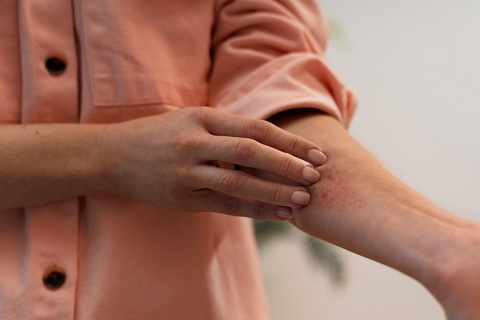
Although urticaria is usually harmless, severe cases can lead to complications such as anaphylaxis, a life-threatening allergic reaction. Chronic urticaria, lasting for more than six weeks, can also have a significant impact on quality of life and may require long-term management.
Home Remedies
In addition to medical treatments, some home remedies may help alleviate symptoms of urticaria. Applying a cold compress to the affected area can help reduce itching and inflammation, while taking oatmeal baths or applying aloe vera gel may soothe irritated skin.
When to See a Doctor
It is essential to seek medical attention if symptoms of urticaria are severe or persistent, especially if they are accompanied by difficulty breathing, swelling of the face or throat, or dizziness. When follow the symptoms are continue daily or on most days for longer than 6 weeks, then you will consult with a dermatologist. A healthcare professional can provide a proper diagnosis and recommend appropriate treatment options.
FAQs about Urticaria
Yes, stress can be a trigger for urticaria in some individuals.
No, urticaria is not contagious. It is not spread from person to person.
The duration of an episode of urticaria can vary from a few hours to several weeks, depending on the individual and the underlying cause.
While urticaria can be managed effectively with treatment, it may not be cured permanently in all cases. Treatment aims to control symptoms and minimize flare-ups.
Yes, urticaria, also known as hives, can be a chronic condition for some individuals. While it may resolve on its own for some people, for others, it can persist for months or even years. It’s important to consult a healthcare professional for proper diagnosis and management of urticaria symptoms. Treatment options are available to help alleviate symptoms and improve quality of life for those affected by this condition.
Conclusion
Urticaria is a common skin condition characterized by raised, itchy welts that can be triggered by various factors. While it can be uncomfortable and disruptive, effective management strategies are available to help control symptoms and improve quality of life for individuals living with this condition.

